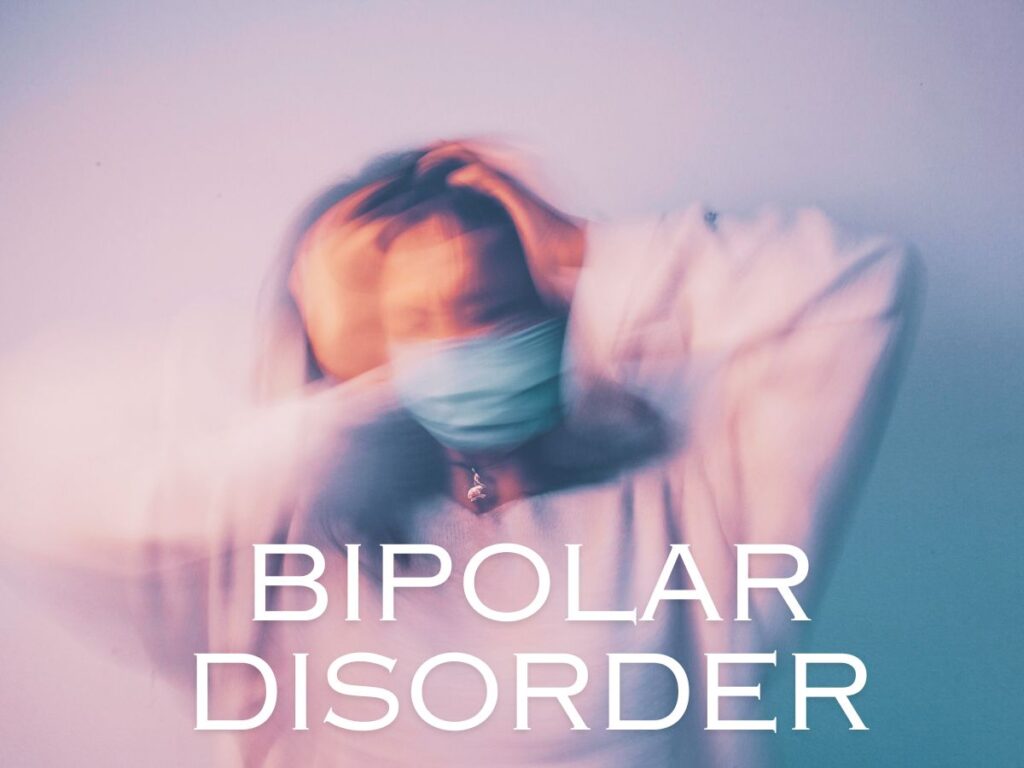Can bipolar people hurt you? Although currently the subject of public discussion on mental health issues, and bipolar disorder saying hurtful things. Bipolar disorder is seen as a deeply complex and frequently misunderstood condition. Bipolar disorder can cause maniacal swings in moods, which can severely disturb one’s conduct and interaction with others. Apart from the heartbreaking symptoms of this disease, such as inappropriate sentences can be frightening too. The article carefully tackles the intricate topics of bipolar disorder, emphasizing the fact of why bipolar patients say such hurtful words and, of course, covers causes, symptoms, diagnosis, medications, and treatment.
Definition of Bipolar Disorder
Bipolar disease, which used to be known as manic–depressive disorder, is a psychiatric condition that displays important changes in mood. These changes can be manifested by manic mood swings such as unreasonable highs that give rise to strong emotions and elation, to the other depressive side marked by sadness, loss of hope, and irritability. Folks who have bipolar disorder might endure problems in self-control and actions and, consequently, face issues in their life and relationships due to bipolar disorder saying hurtful things.

Causes of Bipolar Disorder
The exact reason for bipolar disorder has not yet been clearly defined. However, several factors may contribute to its development, including:
- Genetics: Bipolar disorder is inherited, senior member of the family shows a genetic component.
- Brain Structure and Function: Imbalances in chemicals (neurotransmitters) and the existence of abnormal brain structure may also be potentially involved factors.
- Environment: Among the vulnerable ones, Stressful events, trauma, or significant changes in life patterns can cause the decline.
Symptoms of Bipolar Disorder
The essence of bipolar disorder can be represented as a broad range of symptoms that are broken up into manic, depressive, and hypomanic episodes. Common signs include:
- Manic Episodes:
- Elevated mood
- Promote the improvement in energy level and the active state.
- Racing thoughts
- Impulsive behavior
- Grandiose beliefs
- Depressive Episodes:
- Persistent sadness or emptiness
- Diminished desire to engage in something.
- Fatigue and low-energy conditions.
- Changes in sleep patterns
- Emotions like worthlessness or guiltiness are the ones that consume a person.
Why People With Bipolar Disorder Saying Hurtful Things?
Bipolar disorder is characterized by claiming unacceptable things and the phenomenon is common during specific phases of the disease, for example during the manic episodes. Several factors contribute to this behavior;
Manic Symptoms:
Can you argue with bipolar people? Certain individuals with bipolar disorder face extremely high energy states, impulsivity, and constant thoughts during bipolar episodes. This consequence will encourage them to talk without thinking. The filters in communication will automatically be lowered is what will happen to them.
Lack of Inhibition:
Mania usually implies both unnecessary activity and reduced suppression of dangerous behavior. This will lead to you saying things that are personally exposed, offensive, or can cause a big argument.

Hyperactivity:
Mania can be understood to be a person who can talk rapidly or engage in agitation. This speed of words might just lead to uttered statements that are unfiltered or rude and thus may inadvertently be bipolar disorder saying hurtful things.
Mood Instability:
The nature of bipolar mood disorder is having very high and low ups and downs in overall mood condition. While people with BPD react differently during manic and depressive episodes, they may convey a range of intense emotions that can sound inappropriately harsh or criticizing.
Impaired Judgment:
Do bipolar people blame others for their actions? During mania, people may experience cognitive impairment, which may manifest itself as delusions of reality and the interrelationship with others. It can result in an instance in which the person is just blurting out mean things as if he/she has not yet fully realized the effect of their words.
Underlying Emotions:
Occasionally, in those moments of emotional turmoil, angry outbursts, irritability, and distress can create the so-called hurtful phrases. Such an emotional state can have a big influence on the result of communication, due to bipolar disorder saying hurtful things that make you bursting and aggressive.
Lack of Insight:
They can even deny the negative impact of their behavior at times when the mania is driven by the search for a goal. In this case, they genuinely hold the opinion that what they say is acceptable and right due to the unbalanced reality they experience.
Diagnosis of Bipolar Disorder
Diagnosing bipolar disorder is a process that requires a comprehensive evaluation with a mental health specialist to assess the behavior of bipolar disorder saying hurtful things. This may include;
- Psychiatric Assessment: Assembling data concerning symptoms, family history, and medical history.
- Mood Monitoring: Try keeping a mood journal which can be used to track the shift in the moods over time.
- Physical Examination: To disturb other medical diseases that manifest similar symptoms.
- Clinical Interview: Collection of the data that regard symptoms, medical history, and family history.
Diagnostic Criteria: Referring to the diagnostic criteria described in DSM-5 (Diagnostic and Statistical Manual of Mental Disorders, 5th edition).
Medication and Treatment Options
Medications
Treatment for bipolar disorders usually involves a combination of medications with psychotherapy. Commonly prescribed medications include:
- Antipsychotics: especially in the case of managing manic symptoms.
- Antidepressants: brought in with great care during depressive episodes together with other mood stabilizers.
- Mood Stabilizers: for instance, lithium, valproate, or lamotrigine, which are antibiotics used to treat severe mood swings.

Therapeutic Approaches
Aside from medication, psychotherapy simply called talk therapy is another very important treatment for bipolar disorder. Cognitive-behavioral therapy and interpersonal therapy are two therapies designed to assist individuals gain better control of symptoms and thought processes for bipolar disorder saying hurtful things.
Therapy plays a crucial role in managing bipolar disorder:
- Cognitive Behavioral Therapy (CBT): Apt for the elimination and replacement of unconstructive thinking patterns.
- Family Therapy: Educate and assist family members of people dealing with bipolar disorder.
- Lifestyle Changes: Sticking to a sleep schedule, reducing stress, and being authentic without using alcohol and recreational drugs can help in maintaining mood stability.
Do people with bipolar disorder regret their actions? It is very important to comprehend that the painful remarks made in a manic episode are largely the product of the illness, hence not representing the individual’s real character or intentions at heart. Treatment, which is encompassed by both medication and therapy, is very important for dealing with these symptoms and for encouraging the generation of healthy communication and relationships. Empathy, patience, and the efforts of professionals are likely to stop cruel utterances during the manic stages for bipolar patients with different perceptions.
Coping Strategies and Support
We, bipolar disorder survivors, have to continue dealing with the disorder as well as get just enough support. Here are some coping strategies for individuals and their loved ones:
- Educate Yourself: Acquire the knowledge on the disorder THAT WILL HELP YOU UNDERSTAND the impacts and treatment methods.
- Develop a Support Network: look for support from the family, other people, or any support groups.
- Stick to Treatment Plans: One should invariably adhere to given drugs and therapy sessions.
- Practice Self-Care: Participate in the activities that ensure your overall well-being is achieved. Some include regular exercise, relaxing techniques, and a healthy lifestyle.
Conclusion
Lastly, what needs to be mentioned about bipolar disorder is that it represents a complicated mental health condition that is characterized by mood swings of either elevation or depression. The insulting statements that an individual normally makes with this disorder are complicated to navigate for both them and yet their loved ones due to bipolar disorder saying hurtful things.
Nevertheless, after careful diagnosis and treatment are provided, individuals who suffer from bipolar disorder can productively utilize their symptoms and live a happy life. Whether it be you or someone you know, if you’re having issues with bipolar disorder, reach out to medical practitioners to discuss viable treatment plans and coping strategies that cater to a patient’s unique circumstances. The joint force will be able to help eradicate mental health stigmas and will also be a way to cultivate empathy and understanding in society.

